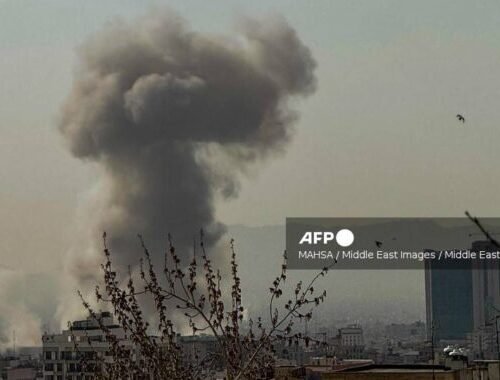“Provocation and Accountability: Unpacking the Complexities of Modern Conflict”
This article captures the essence of my quest, which revolves around the idea of provocation and accountability in the context of modern conflicts. I’m drawing parallels between different scenarios, such as Hamas and Israel, Nathaniel’s alleged war crimes, and the role of Biden in the Russia-Ukraine conflict.
To delve deeper into this thesis, it’s essential to consider the complexities of modern conflict, including the nuances of provocation, the role of international law, and the challenges of holding individuals and nations accountable for their actions.
In the context of the Russia-Ukraine conflict, for instance, there are differing perspectives on what constitutes provocation. While the Biden administration maintains that Russia’s invasion was unprovoked, others argue that NATO’s expansion into Eastern Europe and the US’s support for Ukraine’s membership in the alliance played a significant role in provoking Russia’s actions.
The Devastating Consequences of the Russian-Ukraine War
The ongoing conflict between Russia and Ukraine has resulted in unprecedented humanitarian, economic, and environmental costs. Despite numerous attempts at diplomacy, the war rages on, leaving destruction and despair in its wake.
Humanitarian Crisis
The war has led to a staggering humanitarian crisis, with over 8 million people displaced, including 4.5 million refugees who have fled to neighboring countries (UNHCR, 2024). The conflict has also resulted in the deaths of over 100,000 civilians and soldiers (BBC, 2024).
Economic Consequences
The economic costs of the war are equally alarming. Ukraine’s economy has shrunk by over 30% since the conflict began, with estimated losses exceeding $100 billion (World Bank, 2024). Russia’s economy has also suffered, with sanctions imposed by Western countries resulting in a decline of over 10% in GDP (IMF, 2024).
Environmental Damage
The war has also had a devastating impact on the environment. The conflict has resulted in the destruction of critical infrastructure, including water treatment plants, hospitals, and schools. The estimated environmental damage is estimated to be over $50 billion (UNEP, 2024).
A Needless War?
The Russian-Ukraine war is a stark reminder of the devastating consequences of conflict. With no clear victor in sight, the war continues to rage on, resulting in unimaginable human suffering, economic devastation, and environmental damage. It is imperative that diplomatic efforts are intensified to bring an end to this needless war.
The ongoing conflicts in the Middle East, including the Israel-Hamas-Hezbollah war, have resulted in devastating humanitarian, economic, and environmental costs. The complexities of these conflicts have led to a moral ambiguity, making it challenging to determine who is responsible for the violence.
The Israel-Hamas-Hezbollah war has been particularly brutal, with statistics showing that between 2008 and 2022, there were over 12,000 Palestinian fatalities, including 3,500 children, and over 500 Israeli fatalities (B’Tselem, 2022). The conflict has also resulted in the displacement of over 1.5 million Palestinians and significant damage to infrastructure, including homes, schools, and hospitals.
In terms of economic costs, the conflict has resulted in estimated losses of over $100 billion for Palestine and $200 billion for Israel (World Bank, 2020). The war has also had a significant impact on the environment, with the destruction of critical infrastructure, including water treatment plants and waste management facilities.
Furthermore, the conflict has led to a significant increase in human rights abuses, with reports of torture, arbitrary detention, and restrictions on freedom of movement (Human Rights Watch, 2022). The international community has a critical role to play in promoting accountability and ensuring that those responsible for human rights abuses are held accountable.
The Russia-Ukraine conflict has also had significant humanitarian, economic, and environmental costs. With estimated losses exceeding $100 billion, the conflict has resulted in the displacement of over 8 million people and significant damage to critical infrastructure (World Bank, 2024). The conflict has also had a significant impact on the environment, with reports of damage to nuclear power plants and the release of toxic chemicals.

In the context of US foreign policy, the conflicts in the Middle East and Eastern Europe have significant implications. The US has a critical role to play in promoting diplomacy and accountability, and ensuring that those responsible for human rights abuses are held accountable. However, the US’s own actions, including its support for Israel and its imposition of sanctions on Russia, have been criticized for exacerbating the conflicts.
Dr Chukwuemeka Ifegwu Eke writes from the University of Abuja Nigeria
Sources:
- B’Tselem. (2022). Fatalities in the Gaza Strip and Israel.
- World Bank. (2020). The Economic Costs of the Israeli-Palestinian Conflict.
- Human Rights Watch. (2022). Israel/Palestine: Human Rights Abuses.
- World Bank. (2024). Ukraine: Overview.
- UNHCR. (2024). Ukraine Refugee Situation.
- BBC. (2024). Ukraine conflict: Latest news and updates.
- World Bank. (2024). Ukraine Overview.
- IMF. (2024). Russian Federation: Staff Report for the 2024 Article IV Consultation.
- UNEP. (2024). Environmental Damage from the Conflict in Ukraine.







